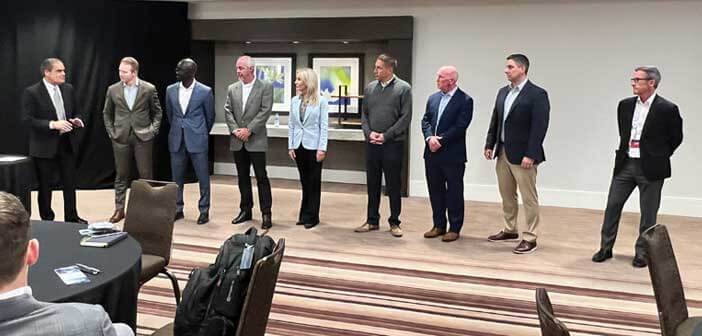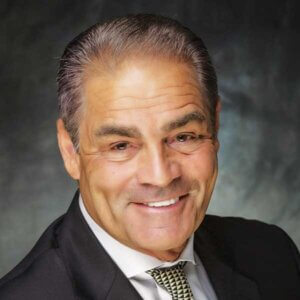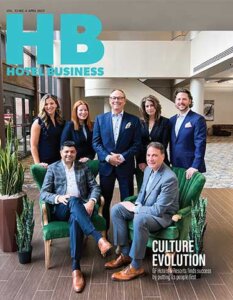With the success and popularity of extended-stay properties on the rise, the Extended Stay Lodging Association (ESLA), a trade organization focused on advancing the segment, has launched.
The association seeks to provide an impartial forum for stakeholders in the segment to share ideas, innovations and best practices.
“The fancy part of an extended-stay hotel is its GOP and, ultimately, its consistent ROI,” said Douglas Artusio, founder/chairman, ESLA and chairman/CEO, Dellisart Hospitality, who has been developing extended-stay hotels since 2001. “The pandemic truly showed the resilience of this segment as it continued to grow profitability, while other parts of the market were not as fortunate. Extended-stay hotels were the silver lining as they operated at a high performance level during all economic times.”
With developers and brands hopping on the extended-stay bandwagon, this paved the way for an association like ESLA, Artusio noted, helping to educate owners, operators, capital partners and other stakeholders.
“Knowledge is power, and that’s what ESLA intends to provide,” said Simon Mendy, board member, ESLA and divisional president, select-service, Aimbridge Hospitality. “We are dedicated to providing data, education tools, resources and training seminars to hotel investors, prospective investors, hospitality students and new management companies to enable them to gain reasonable knowledge to be well-informed and help them make sound investment decisions in the hotel space.”
The education platform will not only help stakeholders gain knowledge about the segment, but increase their ability to manage assets.
“ESLA educates owners on the tested methods to secure new customers and operate in a ‘residential’ mindset that drives extreme loyalty, satisfaction and profits,” Artusio said.
According to the founder, this will come in the form of webinars; educational opportunities, including sharing historic market and industry data; educating members on the importance of proper due diligence for market selection; preopening planning; listing of franchised extended-stay brands for members further investigation; and educating members on general extended-stay demand generators, types of businesses to pursue, measuring profitability and unique ways to find purpose-driven clients.
“[Extended-stay] is the perfect segment for any new investor who needs to register success on their first hotel in order to grow,” Mendy said. “However, it is not common knowledge about the high margins, simple operating model, stable business and resilience to turbulent economic cycles. This segment should also be the investor choice for hotel portfolios looking to diversify their investments. Having a good fraction of extended-stay hotels gives any owner a stable revenue pool that can help keep the business running in hard times.”
Kimberly Rowell, board member, ESLA and EVP, Five Star Hospitality & Development Group, noted that the extended-stay segment is more vital to hospitality now more than ever, as it provides a solution to meet the changing and current needs of consumers and investors.
“Travelers today are looking for value, especially long-term guests booking extended stays,” she said. “They are seeking a space that is designed to look and feel like home. What sets the segment apart from the others has been its ability to remain profitable during periods of economic disruption due to a lean operating model and more consistent occupancy levels driven by the sector’s increased average length of stay.”
Rowell believes the segment’s success will continue and be the main driver in Q2 to Q4 this year. “The demand for these accommodations soars as the need for housing increases,” she explained. “In many markets where supply is low and cost is high, extended-stay provides an immediate solution.”
Artusio agrees that the segment is here to stay, noting that the secret to some is now a secret to none,” but this is not without some concerns, which is where ESLA comes in.”
He continued, “All current brands and possibly even some new players will attempt to get their share of the segment. In time, we risk over-saturation of these types of lodging products. Only the best-trained and focused owners and operators will succeed at current levels in this arena. This is another reason why ESLA is so important. Having the development dollars does not ensure success. Education and applied best practices are the owner’s best chance for perpetual performance.”
Mendy expects to see more institutional investors and new investors investing in the extended-stay segment. He also predicts there will be new brands introduced for the midscale extended-stay hotels and lots of new construction.
While Rowell agrees with the other principals, from her perspective as an operator, she foresees the design of extended-stay properties evolving, causing brands to implement updates to meet new guest needs.
“Recent studies of the new extended-stay guest indicate a growing segment of digital nomads as well as a mobile workforce unable to find available multifamily housing solutions as an answer to the rapid expansion of ‘aparthotels’ in the serviced apartment sector,” she said.
ESLA’s focus for this year will be threefold, the founder said. First, with the launch of a website offering information, data and articles for its stakeholders; secondly, ESLA will create educational content with monthly webinars; and lastly, ESLA plans to increase its membership across all stakeholder categories.
“All extended-stay segment stakeholders are invited to join and contribute their experiences to the organization,” Artusio said. “There will be opportunities to join committees and even our board of directors over time. Members will be able to attend educational webinars, access market intelligence reports on the segment and access the membership.”
Mendy said some goals for ESLA this year is to be known industrywide as the champions for smart hotel investment and the go-to resource for extended-stay, as well as be a balance ambassador for all hotel brands.
“In as much as the extended-stay segment is an attractive business, there are a lot of investors doing it wrong and not realizing the full benefits of the segment,” Mendy said. “In order for ESLA to be helpful and a great resource in this space, we need the support and collaboration with the brands, hoteliers and hospitality investors in order for this great non-profit initiative to come to fruition and last for a very long time.”





